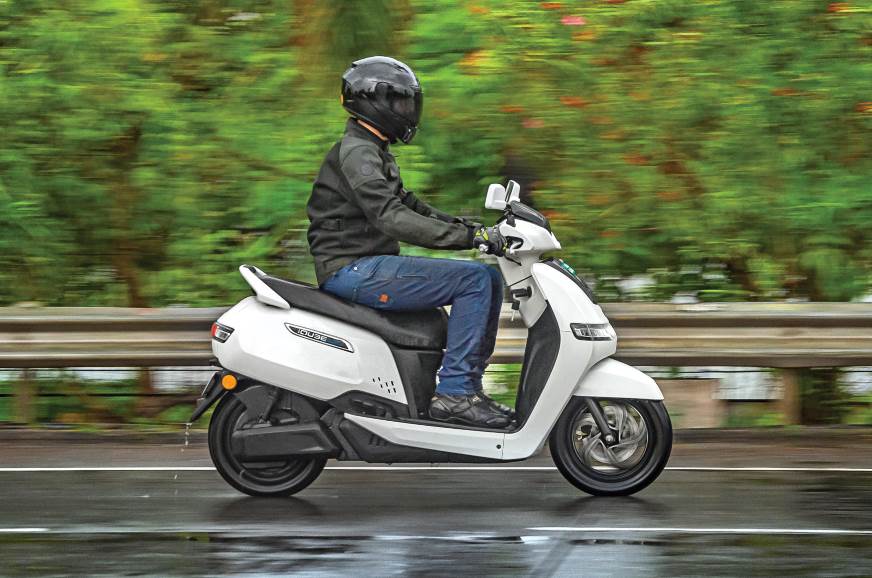
Based on our real-world tests, here’s a look at the TVS iQube electric scooter’s range figures.
-
5 hours charge time
-
2.2kWh Lithium-ion battery
-
Rs 0.3/km running cost (approximate)
Not long ago, a new amendment increased the FAME II (Faster Adoption and Manufacturing of Electric Vehicles in India) subsidy on electric two-wheelers. This increase, along with the additional state subsidies, has resulted in revised pricing that comes close to those of 125cc ICE scooters. With the price now much more tempting, we can now address the other aspect that most customers would be curious to know more about – the real-world range.
What is the real world range of the TVS iQube electric scooter?
The TVS iQube managed to cover 48km in Power mode and a liveable 74km in Eco mode. The range in Power mode is acceptable if you factor in that it doesn’t automatically switch to Eco in the last 20 percent of remaining battery life, like the Ather 450X does. The range in Eco mode, meanwhile, is close to what the company claims (75km). Something else that was quite nice was that the performance didn’t drop significantly as it ran out of juice.
The 2.2kWh Lithium-ion battery on the iQube takes around 5 hours to charge, which is higher than its rivals, but only slightly. There is no fast charge capability.
Analysis of TVS iQube range
Eco mode limits the speed to around 48kph. Unlike most ridiculously slow Eco modes we’ve experienced on some Chinese EVs, this one offers performance you can actually live with in most situations. Most Chinese e-scooters, meanwhile, are unrealistically slow in Eco Mode so they can quote a higher range.
The TVS iQube has an approximate running cost of around Rs 0.3 per km, while a petrol-scooter costs closer to Rs 1.8 per km at current rate of around Rs 107 per litre of fuel. The difference is so huge that you would end up saving roughly Rs 15,000 once you covered 10,000km and Rs 75,000 after covering 50,000km on the iQube. This amount is calculated based on the electricity and fuel consumption costs; EVs are also much more affordable in terms of service costs because there are no oils and filters that need changing. The battery is warranted for 3 years/50,000km, which should be reassuring for most typical scooter users.
Autocar India’s range testing
Before starting our real-world range test, we charge the electric two-wheeler to 100 percent and maintain tyre pressures based on the manufacturer’s recommendation. The two-wheeler is ridden in a fixed city loop at the same time of day where we maintain a certain average speed. The idea is to neither ride aggressively quick nor unnaturally slow and to keep pace with typical traffic speeds. The scooter is ridden till the battery is completely drained. We repeat this process for each riding mode.
Also see:
Comments
Post a Comment